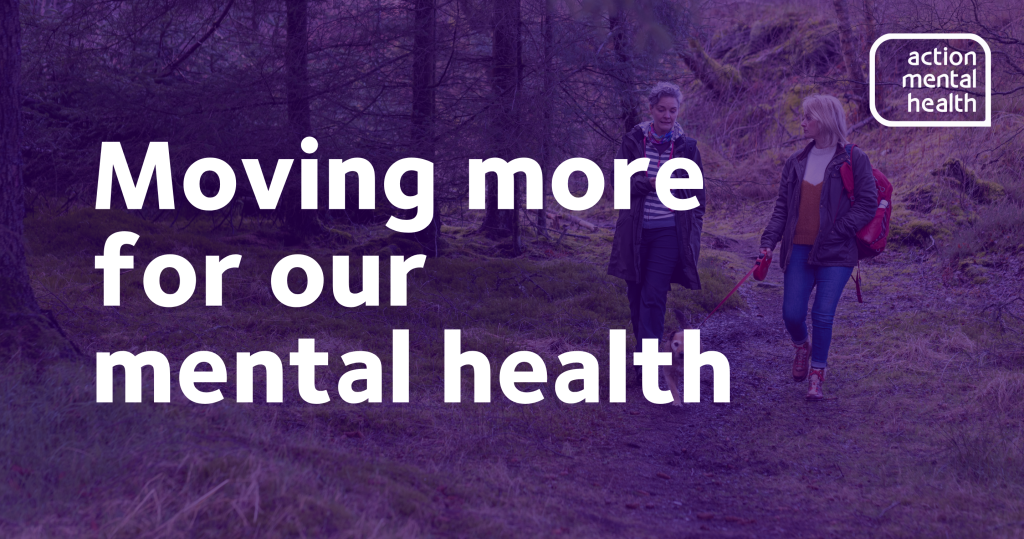
Lauren from the Action Mental Health Works team shares some of the mental health benefits of exercise, and some tips for incorporating more movement into our lifestyle.
Many of us know that movement is a great way to lift your mood and improve anxiety levels. Yet when busy, overwhelmed or struggling with your mental health, it can often feel difficult to find the time, motivation or energy to incorporate exercise. This Mental Health Awareness Week, Action Mental Health want to help break down the barriers to exercise and help people to incorporate moments for movement in their daily life.
Many of us have heard of the “mood-boosting” or “stress-relieving” benefits of daily movement, but what does that really mean? We believe that understanding WHY exercise aids mental health can play a vital role in helping people to incorporate it into their daily routines.
Regular physical activity is proven to improve mental health, quality of life and wellbeing.1 Exercise increases the production of endorphins such as serotonin and dopamine, which are responsible for improving mood and energy levels. It promotes reduces inflammation and increases neural growth, promoting feelings of calm and wellbeing. Exercise can provide a healthy mechanism to process difficult emotions and build self-esteem by focusing on what the body is capable of.
Exercise can ease anxiety and alleviate stress. Anxiety symptoms often relate to the body’s “fight or flight” response- whereby the body releases excessive stress hormones in response to a real or perceived stressor. For those experiencing anxiety, the fight or flight response may be frequently triggered, resulting in uncomfortable symptoms including a racing heart, hyperventilation, shakiness and nausea. Exercise can help control this “fight or flight” reaction by activating the frontal regions of the brain, controlling the amygdala- the part of the brain responsible for reacting to real or perceived danger. Additionally, movement decreases muscle tension, lowering the body’s contribution to feeling anxious.
There is no ‘one size fits all’ when it comes to how much exercise we should do and what type of movement is best. If exercise isn’t currently part of your routine, the thought of joining a gym or lacing up your running trainers may feel too overwhelming and that’s okay! Studies have shown that as little as 5-10 minutes of exercise a day can have a significant impact on anxiety levels and mood.
We recommend starting slow and focusing on a form of exercise you think you might enjoy. Exercise doesn’t have to be strenuous in order to see the mental benefits. Research shows that moderate exercise has the greatest benefits, for most people this means:
Exercise doesn’t have to fit the conventional mould in order to be good for you! Cleaning the house, playing with your kids outside or even getting off the bus a stop earlier are all things which can raise your heartrate without feeling too overwhelming.
When you’re struggling with mental ill-health, exercise can feel incredibly difficult- you know it may make you feel better, but perhaps you don’t have the energy to work out, or the social aspect of the gym makes it feel especially daunting. Be kind to yourself as you aim to incorporate movement into daily life. Here are some tips that may help aid a more self-compassionate approach to exercise:
If you’re looking for some quick and easy ways to move your body more, check out our resources created for Mental Health Awareness Week 2024.